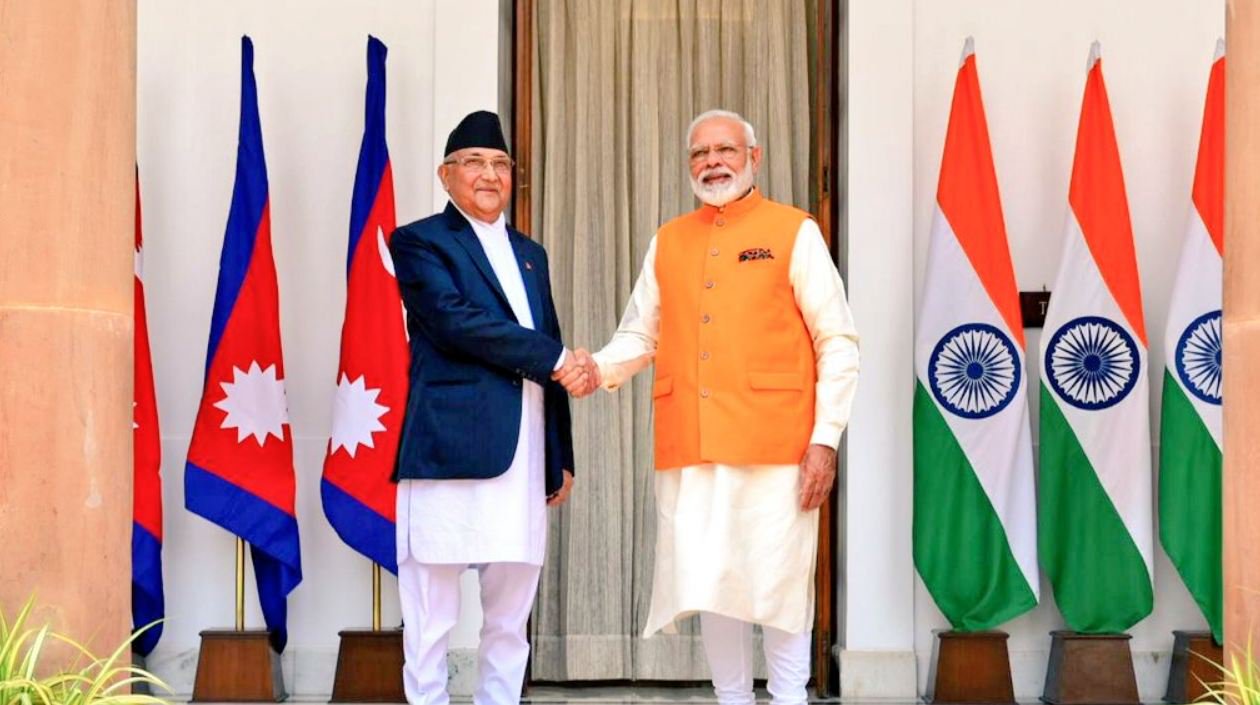Kathmandu- Nepal’s relations with India are still in a sour state due to the ongoing disputes around India’s recent encroachment of Nepal’s lands. This dispute between the two countries has been going on for a long time now.
Meanwhile, a meeting has been scheduled for August 17 in order to end the lack of dialogue between the two countries. Although the date of the meeting between Nepal and India has been confirmed, the officials of both countries have denied to disclose and provide further information on it.
According to sources, the meeting will be chaired by Foreign Secretary Shankar Das Bairagi on behalf of Nepal and Indian Ambassador to Nepal Vinay Mohan Quatra on behalf of India. However, how much of a role the meeting will play in resolving the ongoing disputes between Nepal and India is questionable and up for debate.
According to a source from the Ministry of Foreign Affairs, the meeting will be held at the staff-level and has been mandated to discuss and prioritize the progress of the Indian-funded project in Nepal rather than the ongoing border dispute. As such, without a proper and thorough discussion on pressing issues like the border dispute, very little progress will be made to improve Nepal-India relations.
Prime Minister KP Sharma Oli has indicated the same. In an interview with AP1 Television he questioned, “what is the most recent status with India relations? The media has shown it indirectly, but no news has come from the government itself, although efforts are being made from our side from the government level.” He added that the government’s efforts to discuss such contentious issues, however, have not yet proved successful.
Foreign Minister Pradeep Gyawali, on the other hand, stated that efforts to negotiate with India were being ignored. Gyawali had raised this issue a few days ago with foreign experts at the Ministry.
The Foreign Minister was accompanied by former ambassadors Gyan Chandra Acharya, Deep Kumar Upadhyay, Mahesh Maskey, political analyst Geja Sharma Wagle, Professor Khadga KC and Advisor to the Prime Minister on Foreign Affairs Dr. Rajan Bhattarai. According to a source, Minister Gyawali discussed the issue of changing the government’s foreign policy towards its neighboring countries India and China, as well as with countries in the West.
Although amends have been maken to Nepal’s map since the border dispute arose, Nepali diplomacy has failed to negotiate with India to return the contested land itself. Ministers have expressed disappointment over repeated and unsuccessful attempts to communicate with India, and Nepali diplomacy has reached a stalemate. Even the Nepali ambassador to India has not been able to play an effective role in this circumstance and the political leadership has failed as well. India has not shown any interest in holding talks with Nepal either.
 Aggression in rhetoric
Aggression in rhetoric
It has been widely discussed that Prime Minister KP Sharma Oli reached the pinnacle of power by speaking out against India. Oli had strongly protested against the Indian government following the sudden blockade several years ago. Since then, he has proven successful during the elections by putting up a nationalistic image of himself.
Oli’s outspoken personality has still not changed. Even as the Prime Minister, he continues to speak harshly towards India, whenever needed. For example, a few days ago he stated that India had falsely claimed Ayodhya as the birthplace of Ram and that the actual Ayodhya is in Nepal.
However, despite his forthrightness in speaking out against India, it does not seem as though Nepali land will be returned anytime soon by indulging in just verbal wars. As such, the Oli government has not been able to create an appropriate environment for dialogues with India.
Oli has also appeared aggressive during television interviews. In a recent one, he is quoted saying, “We had communicated to the other side that we should end the talks on the basis of evidence, but then they went ahead and made public a map claiming our territory as their’s. Even when we communicated our interest in having a dialogue, that was the type of response we recieved.
So then we included our land in our maps and made it public too. Let’s not begin to talk about the civility and standards of some of the Indian media. There were materials published that could challenge the level of Indian civility.
Nevertheless, we are still insistent on there being a friendship between the two countries. But a friendship should ultimately be based on equality, and appropriate in the context of the 21st century. It should neither be a humiliating nor an insulting relationship.”
Although Prime Minister Oli has expressed his confidence that the ongoing issues will be resolved through dialogue, there has been no sign of it. “We are in favor of an evidence-based resolution through dialogue,” Oli said in an interview. “Relationships need to improve. It should be resolved through negotiations, and I want to assure you that this will be done.”
Foreign Minister Pradeep Gyawali, too, has aggressively signaled that he will change his policy towards India considering that relations with the country have been deteriorating for a while now. However, experts from the diplomatic field argue that further change on an already strained relationship will only make things worse.
Last Wednesday, Home Minister Ram Bahadur Thapa also presented himself aggressively towards India. Speaking at a meeting of the State Management and Good Governance Committee of the House of Representatives, Home Minister Thapa stated that the border problem between the two countries has arisen due to India’s border encroachment policies. ”The problem at the border is due to India’s tendency to uproot already existing pillars and then rebury them back in Nepal. Until this pattern is changed, the border problem will remain, ”said Minister Thapa.